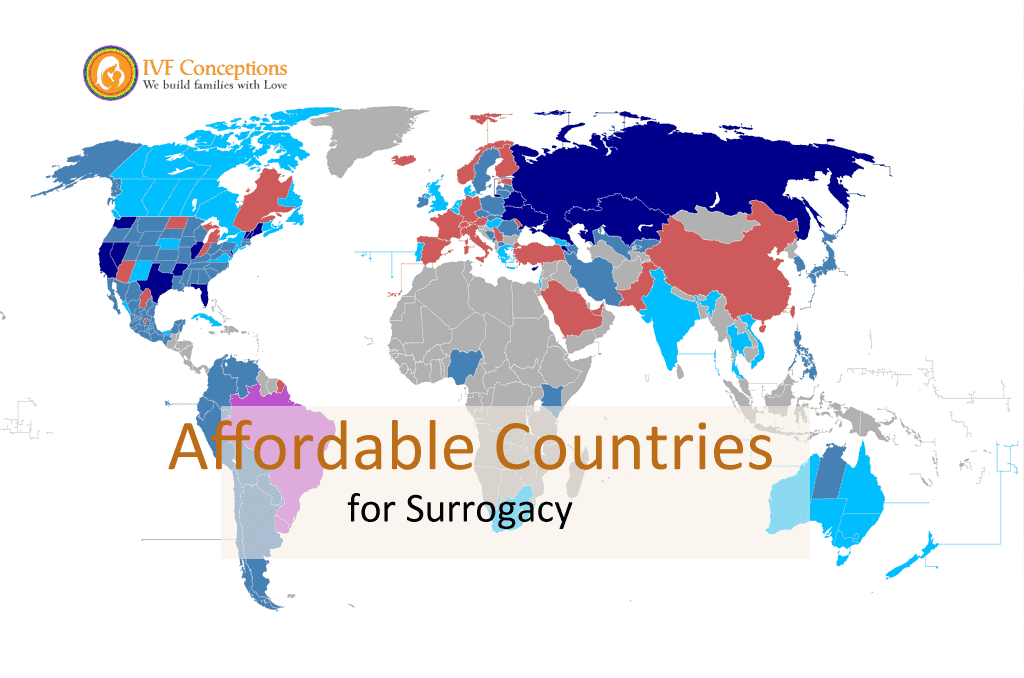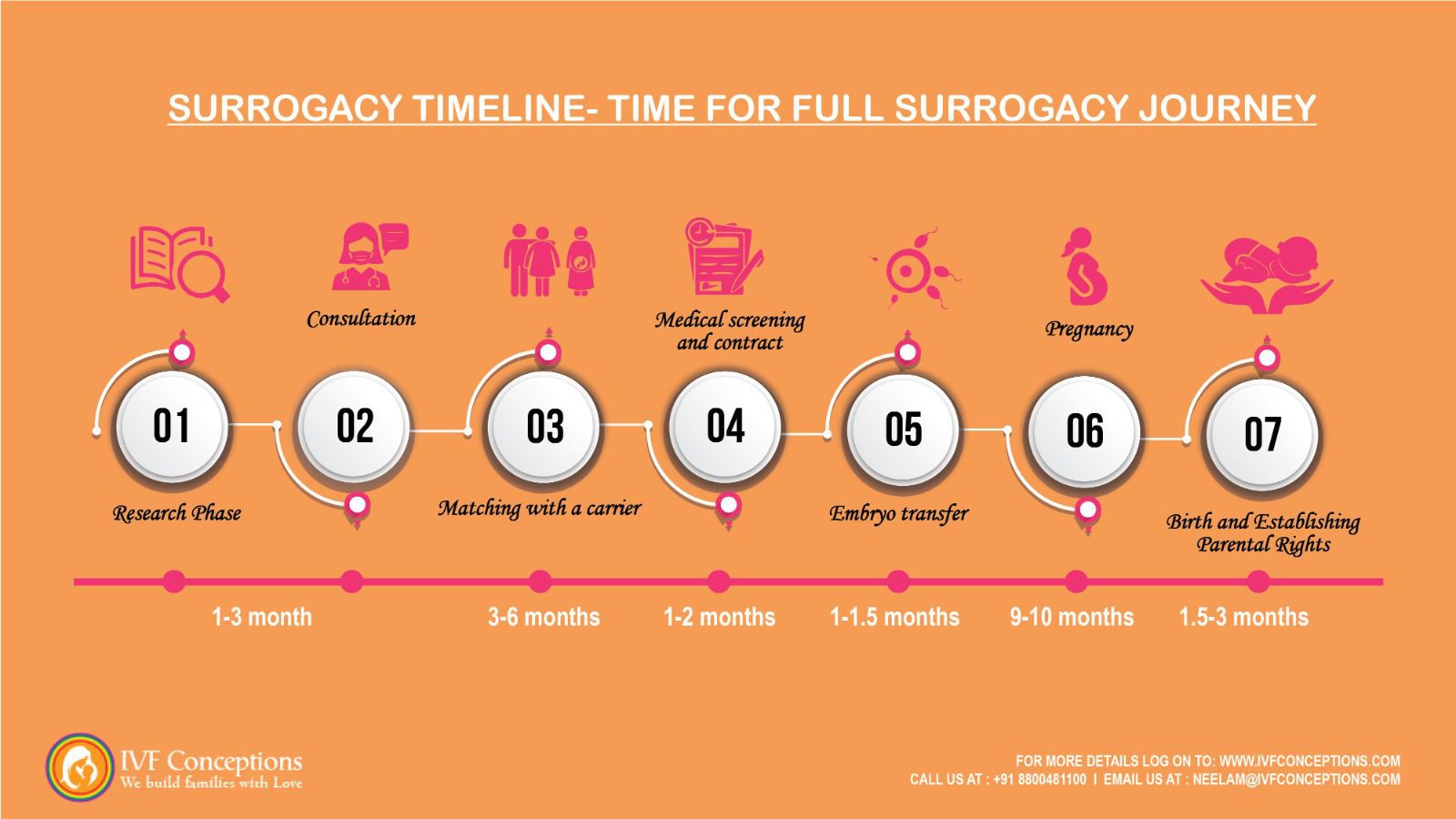Surrogacy in China: Legal Barriers, Alternatives, and Solutions for Intended Parents

Surrogacy has become a lifeline for intended parents facing infertility or complex reproductive challenges. However, in China, the journey is fraught with legal obstacles that can impact both intended parents and medical providers.
This article provides a thorough exploration of surrogacy laws in China, alternatives, cost considerations, and FAQs, guiding intended parents through the information needed to navigate surrogacy effectively and safely.
Key Takeaways
- China prohibits all forms of surrogacy, including commercial and altruistic arrangements.
- Due to high demand, an underground surrogacy market persists, though it comes with substantial legal and ethical risks.
- Many intended parents in China look abroad for international surrogacy options, often finding structured, legally sound alternatives.
Get in touch for a Free Surrogacy Consultancy:
📲 +91-8800481100 ( WhatsApp, Line, Viber)
Our Country pages :
https://www.ivfconceptions.com/surrogacy-in-india/
https://www.ivfconceptions.com/surrogacy-in-ukraine/
https://www.ivfconceptions.com/surrogacy-in-georgia/
https://www.ivfconceptions.com/surrogacy-in-mexico/
https://www.ivfconceptions.com/surrogacy-in-usa/
https://www.ivfconceptions.com/surrogacy-in-colombia/
https://www.ivfconceptions.com/surrogacy-in-laos/
https://www.ivfconceptions.com/surrogacy-in-uk/
https://www.ivfconceptions.com/surrogacy-in-canada/
https://www.ivfconceptions.com/surrogacy-in-kazakhstan-for-intended-parents/
https://www.ivfconceptions.com/surrogacy-in-armenia-process-legal-and-surrogacy-cost-in-armenia/
https://www.ivfconceptions.com/surrogacy-in-argentina-an-comprehensive-guide/

Current Legal Status of Surrogacy in China
Since 2001, Chinese law has strictly prohibited surrogacy arrangements, banning both commercial and altruistic surrogacy. The Administrative Measures on Assisted Human Reproductive Technology enforces this ban, with significant legal consequences for healthcare providers involved in such practices.
However, there are no penalties for intended parents or surrogate mothers, leading to a covert, unregulated surrogacy market.
Key Points:
- Law: Surrogacy contracts are legally unenforceable.
- Penalties: Severe fines and potential criminal charges for medical professionals.
- Exceptions: There are no clear exceptions; the law is strict across all forms of surrogacy.
While surrogacy is illegal, demand has created a clandestine industry where agencies and intermediaries offer surrogate matching services. Many intended parents go through unregulated paths, leading to complex ethical concerns and heightened risks of disputes over parental rights.
Enforcement typically targets healthcare providers rather than individuals, allowing some clandestine surrogacy activity to persist.
Key Points of China’s Surrogacy Law
- Ban on Surrogacy: All surrogacy arrangements, whether paid or unpaid, are illegal.
- Legal Penalties: Medical staff involved in surrogacy face fines and potential criminal prosecution.
- Lack of Legal Recourse: Surrogacy agreements cannot be legally enforced, leading to potential disputes without legal protection.
Challenges of Pursuing Surrogacy in China
The prohibition creates numerous challenges, including a lack of legal recourse, ethical dilemmas, and potential medical complications due to inadequate oversight. Below are the primary obstacles:
- Legal Risks: Healthcare providers and agencies involved risk severe penalties.
- Ethical Concerns: Unregulated surrogacy agreements pose ethical challenges, such as disputes over parental rights and custody issues.
- Medical Risks: In an unregulated environment, surrogates may not receive adequate medical care, leading to increased risks during pregnancy.

Alternative Solutions for Intended Parents
-
International Surrogacy Options
For Chinese intended parents, international surrogacy has become an attractive alternative due to structured legal frameworks and the potential for legally enforceable contracts.
Countries with established surrogacy laws, such as the United States, Georgia, and Mexico, Colombia, Armenia, Argentina, and Ukraine, offer well-defined processes that are safer and legally secure.
Advantages of International Surrogacy:
- Legal Protection: Contracts are enforceable, and surrogate rights are safeguarded.
- Surrogacy costs: Costs and medical standards are clearly defined.
- Health & Safety: Medical oversight is comprehensive, ensuring better care for the surrogate and baby.
-
Adoption as an Alternative
For those who may not pursue international surrogacy, adoption remains an option. Though complicated by waitlists and procedural challenges, it is a viable path for families. International adoption processes, however, may involve extensive paperwork, screenings, and waiting periods.
Cost of Surrogacy in China
So, how much does surrogacy cost in China? The answer is not straightforward as based on the services needed and location of the fertility surrogacy cost in China varies. If some services are not allowed legally, then the cost of unregulated and risky surrogacy services increases as all parties take risks.
Due to the legal barriers within China, costs for clandestine surrogacy arrangements vary widely. Below is a comparison of estimated costs between underground Chinese arrangements and regulated international surrogacy options:
| Expense Category | China (Underground) | International Range (U.S., Georgia, Ukraine) |
| Medical & IVF Procedures | $20,000 – $30,000 | $15,000 – $40,000 |
| Surrogate Compensation | $10,000 – $20,000 | $20,000 – $50,000 |
| Agency/Intermediary Fees | $5,000 – $15,000 | $10,000 – $25,000 |
| Legal & Administrative Fees | Variable (High Risk) | $5,000 – $15,000 |
Understanding the Cost of Surrogacy
Factors impacting cost include:
- Medical Fees: IVF and related procedures vary significantly based on the region.
- Legal Fees: International surrogacy often incurs legal expenses to establish parental rights.
- Agency Fees: International agencies typically charge for surrogate matching and medical coordination.

The Surrogacy Process in China.
A typical surrogacy journey for intended parents involves several stages, from finding a surrogate to finalizing parental rights:
- Choosing a Surrogacy Destination: Identify countries with established surrogacy laws.
- Medical and Psychological Screening: Intended parents and surrogates undergo screenings to ensure compatibility and health.
- Legal Documentation: Draft legally binding contracts to protect all parties involved.
- IVF and Embryo Transfer: The medical process begins with embryo implantation, followed by monitoring of the surrogate.
- Birth and Parental Rights: Secure documentation for parental rights, often handled through international legal services for foreign intended parents.
For intended parents in China, the structured surrogacy programs abroad provide peace of mind that domestic, underground solutions cannot offer.
The surrogacy process takes 18 months to 24 months depending upon the individual circumstances
Outlines the surrogacy process timeline for intended parents:
| Stage | Description of Stage | Duration |
| Research Phase | Explore family-building options and decide on surrogacy. | Personal timeframe |
| Consultation and Application | Choose a surrogacy agency, sign an agreement, and start embryo creation (if needed). | 1-3 Months |
| Matching | Agency finds and presents potential gestational carriers. Meet and decide on a match. | 3-6 Months |
| Medical Screening and Contracts | Carrier undergoes medical and psychological screening. Sign surrogacy contract. | 1-2 Months |
| Embryo Transfer | Prepare for embryo transfer. Success may take multiple attempts. | 1-1.5 Months |
| Pregnancy | Gestational carrier’s pregnancy, approximately 40 weeks. | 9-10 Months |
| Birth and Postpartum | Baby’s birth, establish parental rights, and postpartum period. | 1.5-3 Months |
Please keep in mind that the durations mentioned in the table are approximate and can vary depending on individual circumstances and other factors. Always consult with a reputable surrogacy agency or professional to get personalized guidance throughout the surrogacy journey.
Surrogacy Abroad for Chinese Intended Parents: Best Countries for Surrogacy
Given China’s restrictions, many intended parents look to countries with structured legal frameworks.
Cheapest countries for surrogacy:
| Country | Regulation & Organization | Who are allowed to participate | Surrogacy Cost | Legal Assurance |
| Colombia | Altruistic | Singles, gay couples, hetero couples | Affordable
$70,000 |
Reliable |
| Mexico | Altruistic | Singles, gay couples, hetero couples | Affordable
$70,000 to $80,000 |
Reliable |
| USA | Commercial | Singles, gay couples, hetero couples | Costly
$150,000+ |
Strong |
| Ukraine | Commercial | Hetero couples | Affordable
$60,000 |
Strong |
| Georgia | Commercial | Hetero couples | Affordable
$60,000 |
Strong |
| Greece | Altruistic | Hetero couples and single women | Affordable
$80,000 |
Strong |
Surrogacy Abroad for Chinese Intended Parents
Surrogacy remains legally restricted in China, prompting many intended parents to look abroad for alternative options. While there are numerous international surrogacy destinations, each country has unique legalities, costs, eligibility requirements, and cultural considerations.
Below is a guide to the most popular surrogacy destinations among Chinese intended parents, ranging from legally regulated countries to unregulated but commonly chosen nearby countries.
Nearby Asian Countries for doing surrogacy for Chinese Intended Parents: Thailand, Laos, and Cambodia
Some Chinese intended parents explore surrogacy options in nearby Asian countries like Thailand, Laos, and Cambodia. While these countries do not have formal laws regulating surrogacy, they offer proximity, convenience, and often lower costs.
However, due to their unregulated status, it’s crucial for intended parents to be cautious and well-informed.
Key Considerations:
- Legal Framework: No comprehensive legal protections for either party, which can lead to unpredictable challenges.
- Suitability for Single or Gay Couples: These countries are often chosen by single or gay Chinese intended parents, though careful selection of professionals is essential.
- Recommendation: Consulting with an experienced surrogacy consultant is highly advised to navigate the risks and complexities of unregulated surrogacy.

Legal Surrogacy Countries that you can consider
For a more secure surrogacy experience, Chinese intended parents often choose countries with well-defined surrogacy laws, such as Georgia, Ukraine, Armenia, Mexico, Colombia, and Argentina. These countries have established legal frameworks to protect the rights of all parties involved.
1. Surrogacy in Georgia
- Process: Georgia has clear laws allowing surrogacy for heterosexual couples. A legally binding contract is signed, protecting both the surrogate and intended parents.
- Cost: Typically ranges from $50,000 to $70,000.
- Eligibility: Intended parents must be heterosexual married couples. Single individuals or gay couples are not eligible.
- Benefits: Strong legal protections with a smooth exit process for Chinese parents.
2. Surrogacy in Ukraine
- Process: Ukraine has established surrogacy laws that favor heterosexual married couples. The process includes comprehensive medical screening and a clear legal pathway to parenthood.
- Cost: Generally, between $50,000 and $70,000.
- Eligibility: Only heterosexual married couples are eligible. Ukraine does not permit surrogacy for same-sex couples or single individuals.
- Benefits: Legal safeguards for parental rights, including support with documentation for returning to China.
3. Surrogacy in Armenia
- Process: Armenia allows surrogacy for heterosexual couples and provides a straightforward legal process, though it is less established than Georgia or Ukraine.
- Cost: Costs range from $45,000 to $60,000, making it an affordable option.
- Eligibility: Available to married heterosexual couples.
- Benefits: Armenia offers clear legal protections and is a growing destination for international surrogacy.
4. Surrogacy in Mexico
- Process: Surrogacy laws in Mexico vary by state. Mexican law permits surrogacy for foreigners, but specific states, such as Tabasco, are more established for international surrogacy arrangements.
- Cost: Generally, $60,000 to $80,000.
- Eligibility: Some states allow surrogacy for single individuals and same-sex couples, making Mexico appealing to diverse family structures.
- Benefits: Lower cost compared to other countries and greater accessibility for single or LGBTQ+ intended parents.
5. Surrogacy in Colombia
- Process: Colombia is a surrogacy-friendly country with no strict regulations prohibiting single or same-sex couples.
- Cost: Averages $50,000 to $70,000, depending on the services and clinic chosen.
- Eligibility: Open to heterosexual couples, single individuals, and LGBTQ+ intended parents.
- Benefits: Flexible eligibility requirements and well-regulated clinics for safe, affordable surrogacy.
6. Surrogacy in Argentina
- Process: Argentina has emerged as an LGBTQ+-friendly destination for surrogacy. Although there is no specific surrogacy law, the legal system is supportive.
- Cost: Ranges between $45,000 and $70,000.
- Eligibility: Available for single individuals, heterosexual couples, and same-sex couples.
- Benefits: Flexible for various family structures, with a growing network of clinics and legal professionals experienced in surrogacy.

Key Factors to Consider Before Choosing a Destination
When considering surrogacy abroad, Chinese intended parents should evaluate several factors to ensure a safe and successful journey:
- Legal Framework: Countries with regulated surrogacy offer greater protection for intended parents and surrogates.
- Cost Breakdown: Surrogacy costs vary widely by country, so it’s essential to understand the financial commitments involved.
- Eligibility Requirements: Some countries restrict surrogacy to specific family structures (e.g., married heterosexual couples), while others are open to single or LGBTQ+ parents.
- Exit Process and Documentation: Ensure the chosen country has a clear exit process and provides the necessary documentation to ease the transition back to China.
Importance of Professional Guidance
International surrogacy is complex and involves multiple legal and logistical considerations. Partnering with a reputable surrogacy consultant experienced in assisting Chinese intended parents can provide valuable support.
A consultant can help navigate local laws, find trustworthy surrogacy agencies, and ensure the process aligns with your needs and expectations.
Get in touch for a Free Surrogacy Consultancy:
📲 +91-8800481100 ( WhatsApp, Line, Viber)
📮 www.ivfconceptions.com or www.completesurrogacy.com
Related surrogacy Costs guides:
What is the average surrogacy cost?
How much does surrogacy cost in Ukraine?
How much does surrogacy cost in Georgia?
How much does surrogacy cost in India?
What is the Surrogacy Cost in Colombia?
What is Surrogacy cost in Mexico?
What is surrogacy cost with family members?
Conclusion
Surrogacy has become a crucial option for many families facing fertility challenges. However, in China, the complex legal landscape makes it challenging for both Chinese citizens and foreigners to pursue surrogacy.
For Chinese intended parents, international surrogacy offers the promise of parenthood despite legal restrictions in China. By carefully researching and selecting the most suitable country, and with the support of a knowledgeable consultant, Chinese families can experience a safe and rewarding surrogacy journey abroad.
Get in touch for a free surrogacy consultation to choose the best surrogacy country and best surrogacy program for you.
 FAQs for doing surrogacy in China
FAQs for doing surrogacy in China
1. Is surrogacy legal in China?
No, surrogacy is banned in China, both commercially and altruistically. Healthcare providers involved in surrogacy face legal consequences, though intended parents and surrogates are not directly penalized.
2. What are the risks of pursuing surrogacy in China?
Risks include a lack of legal enforceability, potential ethical dilemmas, and inadequate medical oversight. These factors often lead to disputes or health issues for the surrogate.
3. What is the cost of surrogacy abroad?
International surrogacy costs vary widely. In the United States, it can reach $100,000 to $150,000, while in countries like Georgia or Ukraine, it generally costs between $30,000 and $60,000.
4. Why do intended parents choose international surrogacy?
International surrogacy offers structured legal protection, comprehensive medical care, and enforceable contracts, which are unavailable in China due to its surrogacy ban.
5. What are the requirements for surrogacy in countries like Georgia and Ukraine?
Georgia and Ukraine restrict surrogacy to heterosexual, legally married couples. Legal requirements and eligibility should be reviewed based on the specific country’s regulations.


 FAQs for doing surrogacy in China
FAQs for doing surrogacy in China 